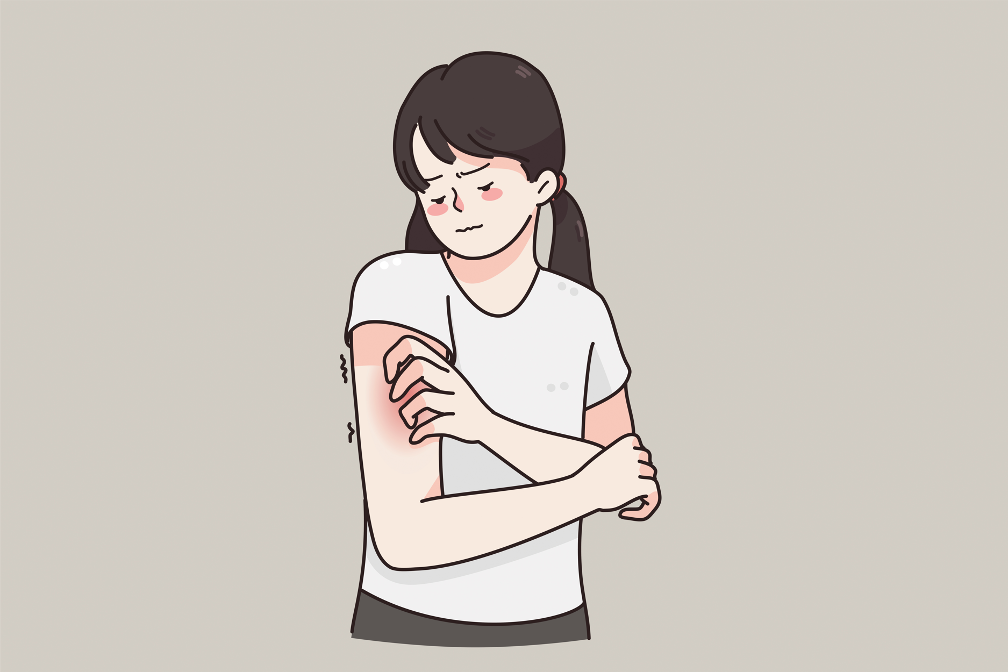Childhood allergies are a common worry for parents, as they can impact your child in many ways. As a parent, it’s important to be aware of some of the most common allergies and how they might impact your child so that you can recognize them early on. Read on as these Northwest Indiana pediatricians share their insight.
What are childhood allergies?
Allergies are our immune system’s overreaction to certain foreign substances (or allergens) that typically don’t harm most people. These allergens can include pollen, insect venom or certain foods.
Every child reacts differently to allergies – some might get skin rash, while others might sneeze excessively or experience itchy eyes. Sometimes the reactions can be much more serious, which why it’s important for parents to pay close attention to how their child responds to different things.
How can you identify allergy triggers in children?
The first thing you need to do is identify what triggers allergic reactions in your child. What your child eats is a big point of emphasis. Eggs, milk, wheat, soy, peanuts and tree nuts are some of the most common sources of food allergies in children.
Other times, it’s about where your child is or what they are near. Pollen, mold, dust mites or even pet dander can cause allergies.
What are the symptoms of an allergic reaction?
The symptoms of an allergic reaction in children can range from mild to life-threatening.
Your child might sneeze a lot, have a runny or blocked nose “hay fever), or their eyes may turn itchy, watery and red (conjunctivitis). They might also have itchy red skin rashes (hives) and feel shortness of breath. Sometimes, they might get swelling in their face or have gastrointestinal issues, including abdominal pain, nausea, vomiting or diarrhea.
The most severe reaction is called anaphylaxis. This is a life-threatening allergic reaction that requires immediate medical attention.
How are childhood allergies diagnosed?
If you think your child might be allergic to something, it may be time to visit your local pediatrician in Northwest Indiana. They will talk with you about your child’s symptoms and any triggers you may have noticed.
They will also perform a physical exam to look for any signs of allergic reactions. Allergy tests, like skin prick or blood tests, usually come next. Sometimes, your pediatrician might even suggest an elimination diet to identify the exact cause.
What are some possible treatment options for children with allergies?
The treatments for allergies vary based on their type and how serious they are. However, the best way to prevent allergic reactions is to keep your child away from known triggers.
Medications like antihistamines can help with sneezing and itching, while decongestants and nasal corticosteroids unblock stuffy noses. In some cases, your pediatrician in Northwest Indiana might recommend immunotherapy (or allergy shots) to help your child’s immune system get used to allergens.
Responding to anaphylactic reactions
Anaphylaxis is a severe allergic reaction that can cause breathing difficulty, sore throat, a sudden drop in blood pressure, and dizziness or lightheadedness. It happens fast and can be life-threatening.
There is no doubt about it – these are emergency situations. If this happens to your child, it’s best to use an EpiPen if you have one and call for medical help immediately.
Looking for an Affordable Pediatrician in Northwest Indiana?
Do you need help managing your child’s allergies? If so, and if you’re ready to schedule an appointment, 219 Health Network is the place to call. Our licensed pediatricians are committed to providing high-quality care for your little ones. Contact us today at 833-219-0001 to learn how we can help.


